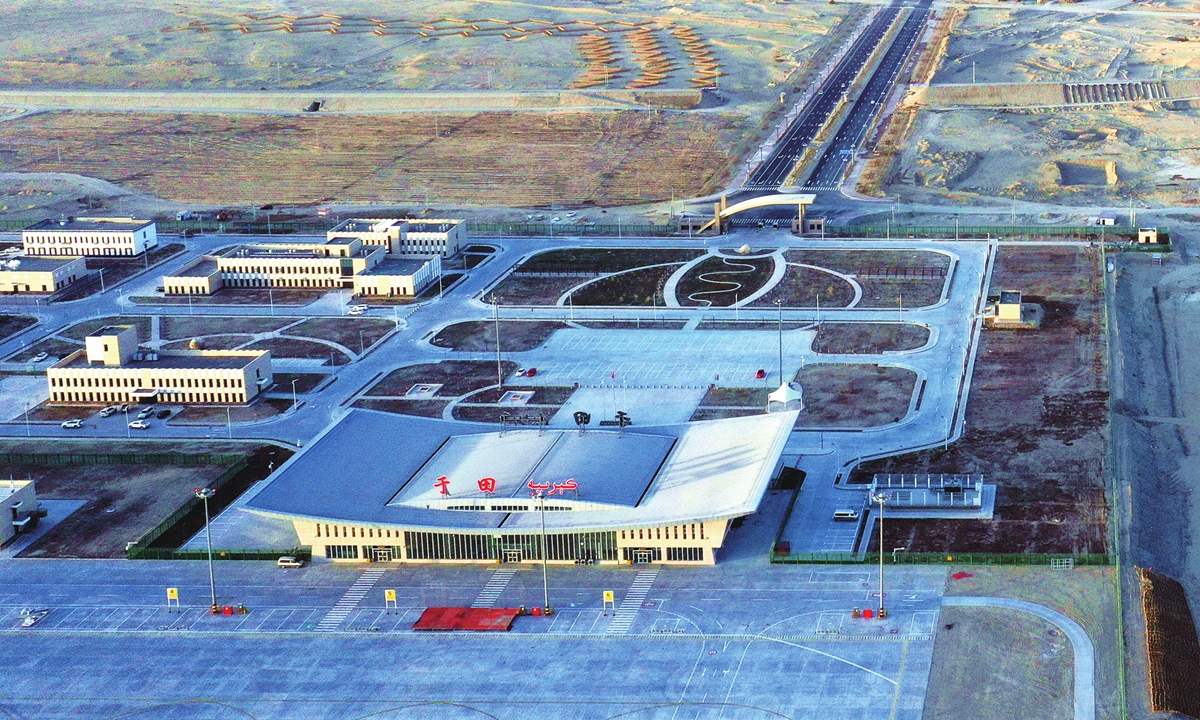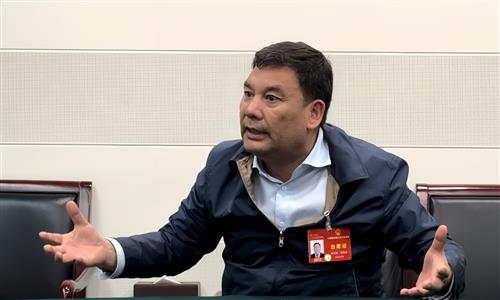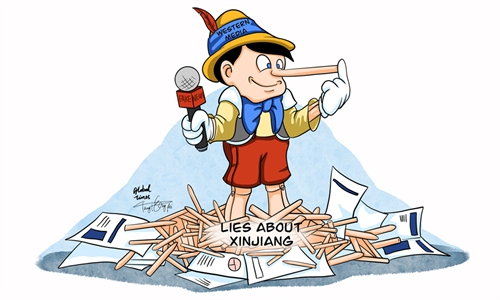
The Wanfang Airport in Yutian county in the Hotan prefecture of Northwest China's Xinjiang Uygur Autonomous Region Photo: VCG
China's centrally administered state-owned enterprises (SOEs) plan to invest in 133 projects in Northwest China's Xinjiang Uygur Autonomous Region from 2024 to 2026, with a total investment of nearly 700 billion yuan ($97.55 billion), China Media Group reported on Tuesday.
With a focus on emerging industries in Xinjiang, the investments will be dedicated to new technologies, new tracks and new markets, striving to create a forward-looking and strategic "incubator," and cultivating new quality productive forces, the report said, citing an unnamed official of the State-owned Assets Supervision and Administration Commission of the State Council (SASAC).
The projects are expected to create 32,000 new jobs for the residents of Xinjiang during the three-year period, the official said at a meeting held in Beijing on Monday.
In 2023, central SOEs invested 270 billion yuan in fixed assets in Xinjiang and secured contracts worth 170 billion yuan for project construction, SASAC Chairman Zhang Yuzhuo said at the meeting.
These efforts are part of a broader strategy to boost local employment through industrial support, Zhang noted.
Ma Xingrui, Xinjiang's regional Party chief, said at the meeting that the SASAC as well as various central enterprises have been deeply engaged in industrial support in Xinjiang over the years, making significant contributions to the region's economic and social development.
In the meantime, Xinjiang offers a broad stage for central enterprises to demonstrate their capabilities and develop themselves, Ma said, noting that it is hoped that more central SOEs will deepen strategic cooperation with Xinjiang, with a focus on the development of the region's distinctive advantageous industries such as the "eight major industrial clusters."
This includes actively participating in oil and gas exploration, strategic energy storage and increased production, and strengthening the value chain of the grain, cotton, fruit and livestock industries, Ma said.
Central enterprises' efforts to support Xinjiang's development have yielded remarkable results in recent years. According to the Xinhua News Agency, the scale of investment from central enterprises in Xinjiang is expected to increase by more than 50 percent during the 14th Five-Year Plan period (2021-25), compared with the 767 billion yuan invested during the 13th Five-Year Plan period.
As one of the latest examples, China National Aviation Holding Co signed a strategic cooperation agreement with the Xinjiang Airport Group recently, aiming to develop Urumqi Diwopu International Airport into a national gateway hub connecting Central Asia, West Asia and Europe with Southeast Asia and Northeast Asia, local media reported on Tuesday.
In 2023, total fixed-asset investment in the region (excluding rural households) increased by 12.4 percent year-on-year, with a growth rate 9.4 percentage points higher than the national average. Investment in the primary industry increased by 9 percent, while that in the secondary industry increased by 32.3 percent, data from the local government showed.
During an inspection tour in Xinjiang in November 2023, Chinese Vice Premier Zhang Guoqing called on central SOEs to make further efforts to assist the region and help it to better serve and integrate into the country's new development paradigm.
"Central enterprises should combine their own advantages with the reality of Xinjiang, and help Xinjiang develop characteristic and advantageous industries and emerging industries," Zhang said.



